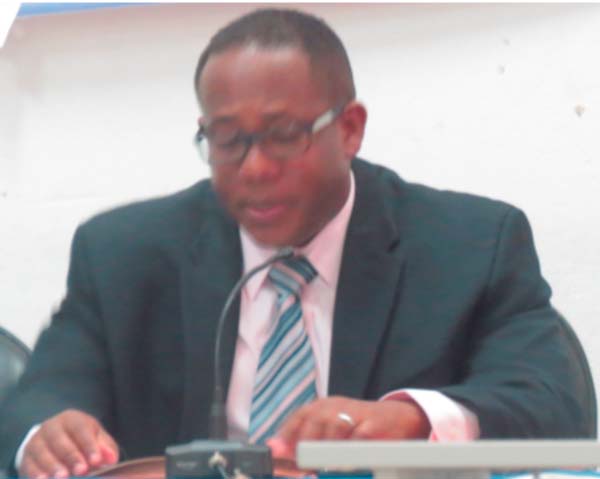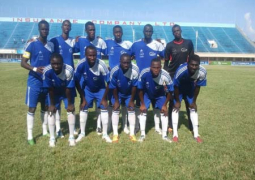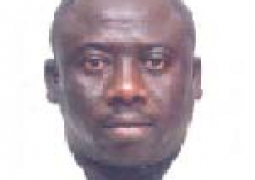
The
Charge d’ Affaires at the U.S. Embassy in Banjul, Marc Shaw, has said that through diplomacy
and assistance, the United States would remain committed to supporting
credible, transparent and inclusive elections.
He
was speaking at a two-day message development workshop on voter education
organised by Media Agenda and sponsored by the U.S. Embassy in Banjul.
The
workshop, held at the TANGO Conference Hall, was attended by 30 participants
drawn from the print and electronic media.
The
project, divided in three phases, is designed to train 100 media
practitioners.
He
said this is in line with encouraging respect for political rules, and reducing
the likelihood of violence during elections.
“Around
the world and in The Gambia,” he said, “we call for the fundamental rights of
political opponents to be fully and unconditionally respected, and for all
political parties to freely conduct their campaign activities without
obstacle.”
He
further stated: “The United States believes in and supports the democratic
process, and that support includes voter registration and civic education
programmes; building the capacity of election commissions; strengthening political
parties; training officials and unofficial civil society election observers.”
Mr
Shaw added that the U.S. Embassy was proud of the project, and they are happy
to be partnering with the Media Agenda for the second time in one year, to
build and enhance the capacity of Gambian journalists.
“This
message development workshop is a crucial element in the U.S. Mission’s overall
election strategy for The Gambia,” he went on.
“With
elections rapidly approaching, we want to do all we can to promote a free, fair
and transparent democratic process. The goal of the project is to expand civic
empowerment and community engagement, improve voter education, and train
broadcasters to be better journalists.”
The
training workshop was very much consistent with the commitment of the United
States to promoting democratic values, he said, adding that it is their strong
conviction that an informed electorate would make informed decisions at the
polls.
Experiences
from other sub-Saharan African countries show that pervasive voter apathy was
largely due to lack of necessary voter education, he noted.
Too
often, he continued, people lose interest in the democratic process because
they feel their vote doesn’t count, or because governments neglect civic
education programmes.
“We
don’t want to see voter apathy take hold in The Gambia, and what better medium
to create an enthusiastic and informed electorate than the broadcast media,” he
said.
“One
can’t deny that the media plays a vital part in the democratic process. Its role must be understood and nurtured to
enable it to deliver on its core mandates informing and educating.”
Mr
Shaw also indicated that message development is at the heart of the
profession’s mandates, saying: “The messages you develop will be broadcast on
radio stations across the length and breadth of the country.”
They
are sure to have a far-reaching impact, he said, adding that through these
messages, rural communities would better understand their roles and
responsibilities as an electorate.
“We
hope that they will also better understand the duties that representatives owe
to their constituencies,” he stated.
“I
believe that this sort of citizen empowerment is essential for any democratic
process.”
He
added that a vibrant and empowered civil society is a cornerstone of democracy
because it promotes inclusiveness, transparency, rule of law, and human rights.
He
said President Obama elevated democracy and governance as key priorities for
his administration and, on the margins of the 2013 UN General Assembly, he
launched Stand with Civil Society, reaffirming the rights to freedom of
assembly and association globally.
“I
strongly agree with President Obama that the real ingredients for democracy
include not only free and fair elections, but also freedom of speech, freedom
of the press, and freedom of assembly,” he stated.
“These
rights are universal. People must be able to exercise these rights without any
fear of reprisal.”
Mr
Shaw also said that during critical periods like elections, citizens must be
allowed to freely associate themselves with anything they find of value and
interest.
“We
expect that government will widen the democratic space for the participation of
every citizen,” he said.
He
also said the 2016 election presents a litmus test for The Gambia and its
political leaders, as the Independent Electoral Commission has cleared nine
political parties to contest the polls.
“We
have already seen unrest and protest, followed by trials and imprisonment. This
shapes an uneasy political path. It is,
therefore, vital that political leaders and actors conform to best electoral
practices, promote democratic values, and avoid any actions that will promote
further chaos and violence,” he added.
“As
elections approach, we also have the opportunity and responsibility to
recognize the role of journalists,” he noted.
“Journalists
and other members of the media should be able to freely investigate, research,
publish and share news, information and opinions on electoral matters without
fear of reprisals.”
Governments
are responsible for protecting journalists from physical harm and intimidation
at all times, but more so during elections, he continued.
Shaw
also quoted President Obama proclaiming that, “democracy is not just formal
elections when journalists are put behind bars for doing their jobs, or
activists are threatened as governments crack down on civil society; then you
may have democracy in name, but not in substance.”
Read Other Articles In Article (Archive)



